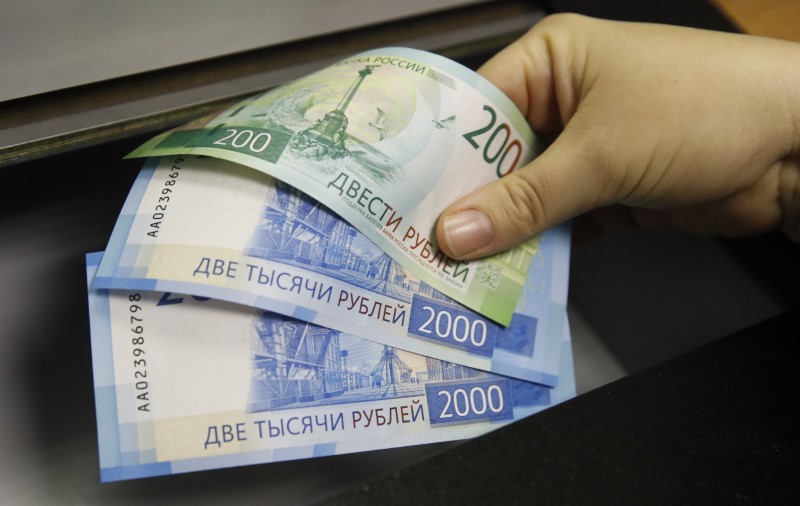by Yana Shebalina
Investing.com - Before the beginning of 2014, and the introduction of the first powerful sanctions against Russia due to the situation in Ukraine, almost no one thought about the correlation between the ruble and oil prices. But after the outbreak of the crisis, the correlation between the indicators became evident; in recent years, the cost of oil has directly affected the Russian budget.
And although the domestic economy is trying to move away from oil and gas dependence, it still remains in that holding pattern. However, earlier this year the experts of the Accounts Chamber of the Russian Federation said that the budget’s dependence on oil prices is starting to decrease. In the digest Economic Monitoring, prepared by the Accounts Chamber’s Department for Audit of Economic Development, the experts wrote that over the years, the correlation coefficient between the oil price and the dollar exchange rate has decreased from -0.91 in 2016 to -0.61 in 2020.
The Accounts Chamber explained that the drop in the index was recorded after the introduction of a floating ruble exchange rate, the Central Bank's transition to an inflation targeting policy, and the application of the budget rule. Thus, in 2014-2017, when oil prices moved from $112 to $24 per barrel, an absolute change of more than 3.6 times, the fluctuation of the ruble against the dollar was from 33 to 84 rubles, or 1.5 times.
At the same time, for the period from January 2018, when the budget rule came into effect, to February 2020, when oil quotations changed in the range from $85 to $48 per barrel, or about 80%, the fluctuation of the ruble against the dollar was in a relatively narrow range of 56 to 70 rubles, or 25%.
As a result, the JV analysts concluded that oil prices continue to affect the ruble, but there are other, more important influences. They include the reduction of Russia's current account balance of payments and external geopolitical risks, including the constant threat of new sanctions.
Andrey Kochetkov, an analyst at Otkritie Broker, says that the ruble is one of the most undervalued currencies in the world, and it is not because of the high price of oil, but because of strong fundamentals. Russia has a trade surplus, a current account surplus and a very small external debt.
"We are used to oil costing 3,000-3,500 rubles per barrel. In the last few years, however, the ruble exchange rate has ceased to correlate with the price of oil. The budget rule is partly to blame for this. In fact, the high price of oil began to have a negative impact on the ruble exchange rate. The higher the oil prices, the more funds are spent by the Ministry of Finance for purchasing foreign currency, which puts pressure on the ruble," says Kochetkov.
According to the data of the end of October 2021, despite the implementation of the budget rule, the correlation between the dynamics of the black gold and the ruble reached a record value since the second half of 2020 at 50%. Vladimir Bragin, head of research at Alfa Capital Asset Management, predicts that the ruble exchange rate will continue to be influenced by oil price movements in 2022, in addition to the fundamental factors. In addition, it will be affected by sanctions and geopolitical risks.
Mr. Bragin concluded that it is fundamentally unimportant for the ruble whether oil will cost $60 or $100 per barrel in 2022. According to him, the only difference will be the speed of accumulation of foreign exchange reserves. That's why, the analyst added, if we take the oil price as related to the ruble, we will do it only as an indicator of the general situation in the economy and the markets.
Read also: After a Year of Embargoes & Rising Costs, Brazilian Meat Producers Set to Rebound
See our full 2022 outlook series here.
